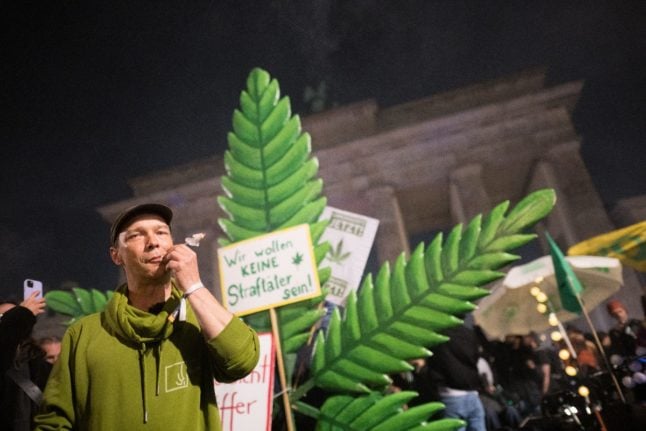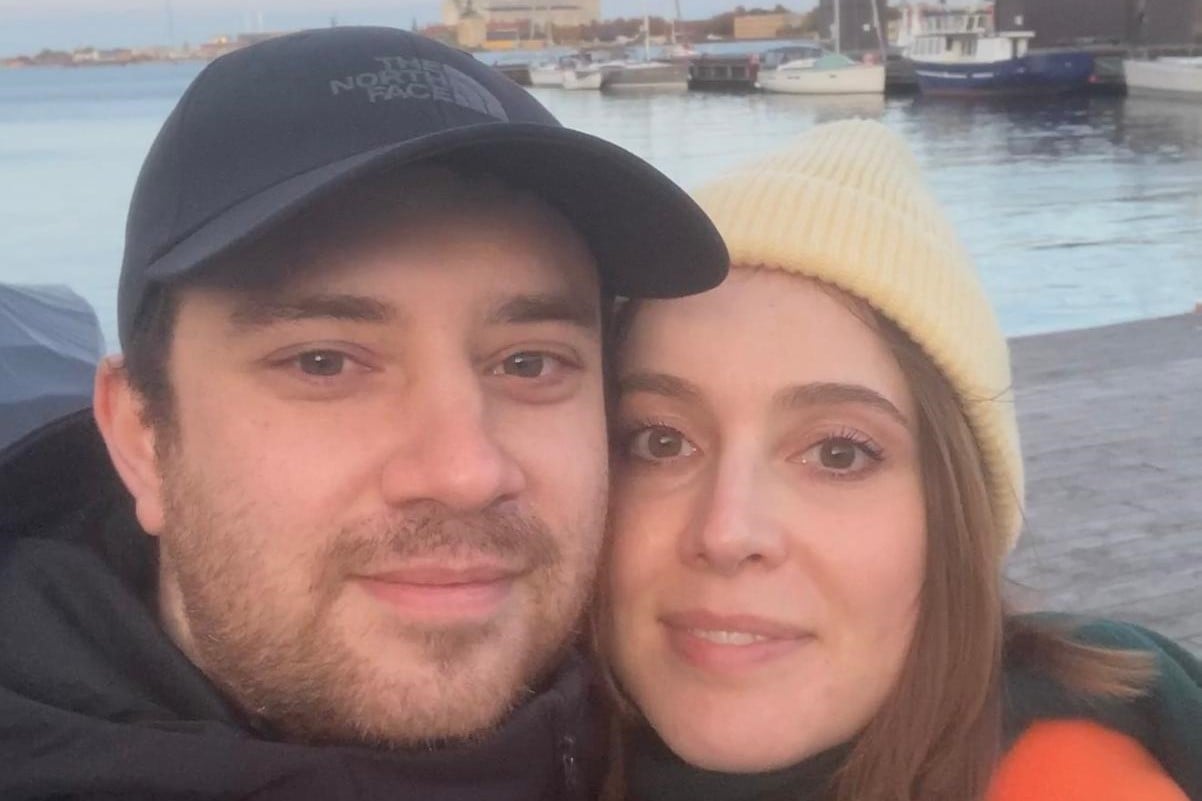Living in Germany is our weekly look at some of the news and talking points in Germany that you might not have heard about. Members can receive it directly to their inbox on Saturday.
Germany marks new era in cannabis ‘freedom’
The week in Germany started off with a bang as possession of cannabis became legal. Adults are now allowed to carry up to 25 grams of dried cannabis on them and cultivate up to three marijuana plants at home. It means that Germany now has one of the most liberal cannabis laws in Europe. As the clock struck midnight on Sunday, leading into April 1st, hundreds of people cheered next to Berlin’s Brandenburg Gate. Many of them lit up a joint to celebrate, with one participant calling it “a bit of extra freedom”. From July 1st it will be possible to legally obtain weed through regulated “cannabis social clubs” in the country. These associations will be allowed to have up to 500 members each, and will be able to distribute up to 50 grams of cannabis per person per month.
But not everyone is on board. Addiction experts have called for more support for younger people. “From our point of view, the law as it is written is a disaster,” said Katja Seidel, a therapist at a drug addiction centre in Berlin. Meanwhile, Conservative opposition leader Friedrich Merz has said he would “immediately” repeal the law if he and his party form a government following German federal elections next year.
Tweet of the week
In weird news of the week, the president of Botswana threatened to send 20,000 elephants to Germany in a row over the import of hunting trophies. Germans should “live together with the animals, in the way you are trying to tell us to”, Mokgweetsi Masisi told German newspaper Bild, adding that the country’s elephant population had grown to around 130,000. “We would like to offer such a gift to Germany,” Masisi said, adding that he would “not take no for an answer”.
It came after Germany’s environment ministry earlier this year raised the possibility of stricter limits on the import of hunting trophies over poaching concerns. But a ban on the import of hunting trophies would only impoverish Botswanans, Masisi said.
Social media users speculated about just how the elephants would fit in in Germany.
So Botswana has threatened to send 20,000 elephants to Germany.
I reckon this could be the solution to Germany’s addiction to cars, although I’ve no idea the top speed of an elephant.
Surely they’re faster than the average Sonntagsfahrer. pic.twitter.com/P1eijPYH5B
— Nic Houghton (@40PercentGerman) April 3, 2024
Germany in Focus podcast
In this week’s episode, we talk about the controversy over Germany’s national football team’s kits, a vow to have more punctual trains by Christmas, Spargelzeit, tax deadlines and we look at happiness levels of Germans. Check it out here or wherever you get your podcasts. Please leave a review and a rating or let us know your feedback. You can email the team directly at [email protected].
Where is this?

One of the joys of Germany in spring is the cherry blossom trees, as seen here in Olympiapark in Munich. And they are reaching full-bloom right about now. Make the most of them this warm weekend and in the coming days by checking out some sites across Germany which are home to these beautiful trees. The fleeting season only lasts a few weeks.
Did you know?
The Romantic era of art, music and literature is one of Germany’s greatest cultural gifts to the world, encompassing the work of poets such as Goethe and Schiller, composers like Beethoven and artists like Caspar David Friedrich. But did you know that there’s a museum dedicated to the era? That’s right, the German Romanticism Museum or Deutsches-Romantik Museum is the world’s largest collection of objects related to the Romantic movement. In addition to artefacts from some of the greatest names in German romanticism, in 2024, you’ll find a major exhibition exploring Goethe’s controversial 1774 novel, ‘The Sorrows of Young Werther’, and another on the forest as depicted as dark and dramatic in the art of the period. Read about some more fascinating museums to visit this spring in Germany here.





 Please whitelist us to continue reading.
Please whitelist us to continue reading.
Member comments